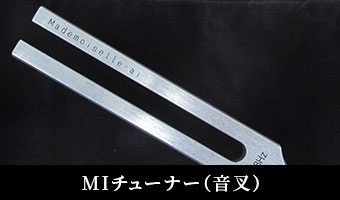皆様
3日発出のBCC英発信をお届けいたします。
下記添付のAP電が報じた福島第一 タンク水75万トン 放射性物質を再浄化へ
など東電がこの期に及び公表した驚くべき諸事実はとりわけ海外に衝撃を与えております。
特にIPPNWの関係者は汚染水の海洋放出の可能性につき,
”absolutely horrible development and an enormous future threat”
としてこれを断固阻止する姿勢を打ち出しております。
原発の安全についての責任の所在を明確にしない日本の原子力政策そのが国際的に問われだそうとしております。
安全に責任を有さないことを公言する原子力規制委員会 に
断じて許してはならない過酷事故再発の可能性を 有無
再稼働を許可する権限を与えることなど 国際的に理解される 筈がありません。
原発はこれが存在する国に向けられた核兵器であるとの認識は 内外で共有されるに至っております。
過酷事故の再発を防ぐためには 日本の原子力政策のあり方そのものを見直す必要がある との認識が深まる気配を
感じております。
皆様のご理解とご支援をお願い申し上げます。
村田光平 (元駐スイス大使)
( BCC英文発信10月3日発出)
Dear Friends,
The news about accumulated contaminated water at F1 surpassing nearly one million tons, including tritium
and other numerous newly revealed radio-active elements like strontium and plutonium is shocking.
The relevant article of Associated Press is attached below.
The belated timing of the announcement by the Tepco is considered as not acceptable..
We are reminded that the responsibility of the nuclear safety is assumed by nobody in Japan.
The following strong message has reached me, sent from a member of the Board of IPPNW Switzerland
“It is an absolutely horrible development and an enormous future threat if containments should ever fail or some irresponsible decision makers should decide to dump the stored radioactive fuel mix it into the pacific.
We from IPPNW must raise our voices over the ongoing nuclearisation in Japan, the lasting serious nuclear threats and the ongoing very difficult cleanup measures, threatening todays and the future regional population …”
The scandalous handling by the TEPCO of the contaminated water accumulated at the F1
will certainly enliven the ongoing campaign “2020 Radioactive Tokyo Olympic” of the IPPNW~Germany.
Mitsuhei Murata
Former Ambassador to Switzerland
—————————
Water stored at Fukushima
nuclear plant still radioactive
By Mari Yamaguchi, Associated Press via The Toronto Star, September 28, 2018
https://www.thestar.com/news/world/2018/09/28/water-stored-at-fukushima-nuclear-plant-still-radioactive.html
TOKYO—The operator of Japan’s wrecked Fukushima nuclear plant said Friday that much of the radioactive water stored at the plant isn’t clean enough and needs further treatment if it is to be released into the ocean.
Tokyo Electric Power Co. and the government had said that treatment of the water had removed all radioactive elements except tritium, which experts say is safe in small amounts.
They called it “tritium water,” but it actually wasn’t.
TEPCO said Friday that studies found the water still contains other elements, including radioactive iodine, cesium and strontium. It said more than 80 per cent of the 900,000 tons of water stored in large, densely packed tanks contains radioactivity exceeding limits for release into the environment.
TEPCO general manager Junichi Matsumoto said radioactive elements remained, especially earlier in the crisis when plant workers had to deal with large amounts of contaminated water leaking from the wrecked reactors and could not afford time to stop the treatment machines to change filters frequently.
“We had to prioritize processing large amounts of water as quickly as possible to reduce the overall risk,” Matsumoto said.
About 161,000 tons of the treated water has 10 to 100 times the limit for release into the environment, and another 65,200 tons has up to nearly 20,000 times the limit, TEPCO said.
Matsumoto said the plant will treat the water further to ensure contamination levels are reduced to allowable limits.
He was responding to growing public criticism and distrust about the status of the water.
More than 7 1/2 years since a massive March 2011 earthquake and tsunami destroyed three reactors at the plant, Japan has yet to reach a consensus on what to do with the radioactive water. Fishermen and residents oppose its release into the ocean. Nuclear experts have recommended the controlled release of the water into the Pacific as the only realistic option.
The release option faced harsh criticism at town meetings in Fukushima and Tokyo in late August, when TEPCO and government officials provided little explanation of the water contamination, which had been reported in local media days earlier.
TEPCO only says it has the capacity to store up to 1.37 million tons of water through 2020 and that it cannot stay at the plant forever.
Some experts say the water can be stored for decades, but others say the tanks take up too much space at the plant and could interfere with ongoing decommissioning work, which could take decades






